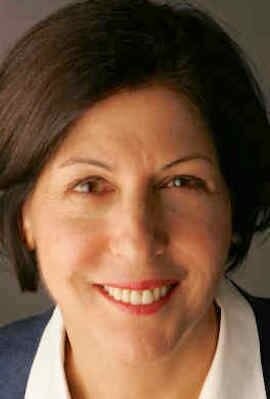Science
Trump Criticizes Universities Amid Record Nobel Prize Wins

In a striking juxtaposition, six scientists based in the United States recently won Nobel Prizes, highlighting the pivotal role of American public universities in fostering groundbreaking research. All six laureates are affiliated with institutions that are part of this educational framework, with five having connections to California’s renowned higher education system. This moment of academic triumph coincides with President Donald Trump‘s ongoing criticism of universities, which he claims are failing to uphold free speech and address issues of student behavior, including incidents of antisemitism.
The Nobel Prize announcements occurred over a brief span, showcasing the influence of public universities on the global stage. This recognition underscores the achievements of institutions that are often at the center of political debates regarding their role in society. As the scientific community celebrates these accolades, Trump has directed his focus towards what he perceives as systemic failures within these educational establishments.
Trump’s remarks center on allegations that universities are not adequately defending free speech principles. He has expressed concern over unruly student behavior, which he argues has sometimes taken a troubling turn towards antisemitism. While free speech is a cornerstone of American democracy, critics of Trump’s approach suggest that his rhetoric may stifle constructive dialogue and undermine the very values he claims to defend.
Impact on Higher Education
The president’s stance raises important questions about the future of higher education in the United States. Universities serve not only as centers for learning and innovation but also as platforms for diverse viewpoints and discussions. Critics argue that Trump’s focus on condemning universities could have lasting implications for academic freedom and the pursuit of knowledge.
California’s higher education system, in particular, has been a focal point in this debate. The state is home to some of the most prestigious universities in the world, which have produced countless scholars and researchers who contribute significantly to various fields. The recent Nobel Prize wins serve as a reminder of the importance of supporting these institutions rather than undermining them.
The scientific achievements recognized by the Nobel Prizes reflect a commitment to excellence in research and education. It is crucial for leaders to recognize and support the contributions of universities, especially during a time when their roles are being questioned. As the debate continues, the relationship between government and educational institutions will likely remain a contentious topic.
Looking Ahead
As discussions surrounding free speech and university conduct evolve, the impact of these issues on future generations of students becomes increasingly significant. The balance between maintaining open dialogue and ensuring a respectful environment is delicate. The recent Nobel Prize wins highlight the need for a collaborative approach that fosters both academic freedom and an inclusive atmosphere.
In conclusion, the recognition of six U.S.-based scientists with Nobel Prizes serves as a testament to the vital contributions of American public universities. While President Trump’s criticisms raise important points about free speech and student behavior, it is essential to engage in constructive dialogue that enhances, rather than diminishes, the role of education in society. The future of higher education may depend on finding common ground that upholds the values of free expression while promoting respect and understanding among diverse communities.
-

 Science2 weeks ago
Science2 weeks agoInventor Achieves Breakthrough with 2 Billion FPS Laser Video
-

 Top Stories2 weeks ago
Top Stories2 weeks agoCharlie Sheen’s New Romance: ‘Glowing’ with Younger Partner
-

 Business2 weeks ago
Business2 weeks agoTyler Technologies Set to Reveal Q3 Earnings on October 22
-

 Entertainment2 weeks ago
Entertainment2 weeks agoDua Lipa Aces GCSE Spanish, Sparks Super Bowl Buzz with Fans
-

 World2 weeks ago
World2 weeks agoR&B Icon D’Angelo Dies at 51, Leaving Lasting Legacy
-

 Health2 weeks ago
Health2 weeks agoCurium Group, PeptiDream, and PDRadiopharma Launch Key Cancer Trial
-

 Health2 weeks ago
Health2 weeks agoCommunity Unites for 7th Annual Into the Light Walk for Mental Health
-

 Entertainment2 weeks ago
Entertainment2 weeks agoRed Sox’s Bregman to Become Free Agent; Tigers Commit to Skubal
-

 Entertainment2 weeks ago
Entertainment2 weeks agoMother Fights to Reunite with Children After Kidnapping in New Drama
-

 Health2 weeks ago
Health2 weeks agoNorth Carolina’s Biotech Boom: Billions in New Investments
-

 Science2 weeks ago
Science2 weeks agoNorth Carolina’s Biotech Boom: Billions Invested in Manufacturing
-

 Top Stories3 weeks ago
Top Stories3 weeks agoDisney+ Launches Chilling Classic ‘Something Wicked’ Just in Time for October









